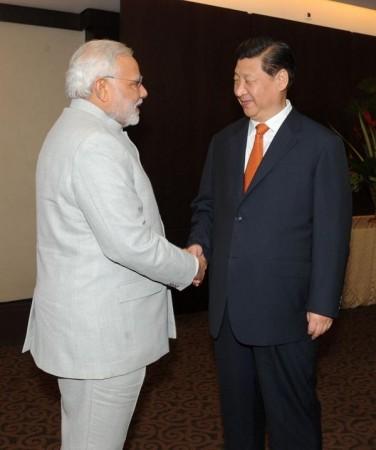
Modernisation of many Indian railway stations, upgrading signalling system at level crossings, and introduction of high-speed trains are likely to be among the economic cooperation agreements inked during Chinese President Xi Jinping's India visit next week.
It will be mostly business during President Xi's three-day India visit beginning 17 September.
While Japan is working on plans to introduce the Shinkansen system (of bullet trains) in India following Prime Minister Narendra Modi's visit to Tokyo earlier this month, China too had earlier evinced keenness to sell its bullet trains to India.
During Xi's visit, any agreement on bullet trains is unlikely. Instead, India has indicated keenness to purchase high-speed trains from China, official sources told IANS.
With the Modi government planning a major overhaul of railway stations - India has one of the world's largest railway systems that ferries over 13 million passengers and 1.3 million tonnes of freight every day - it is likely Chinese would be involved in this mega venture.
Chinese help is also expected to be sought in the railway signalling systems in the country, the sources said.
Unmanned or poorly manned railway crossings cause frequent accidents in India and lead to a large number of deaths.
As recently as 24 July, a train rammed into a school bus at an unmanned railway crossing in Andhra Pradesh's Medak, resulting in the death of 19 children.
President Xi is likely to announce investments in industrial parks in Gujarat and Maharashtra, the sources indicated.
He begins his India tour from Gujarat, Modi's home state where he was Chief Minister for three terms.
In July, during Commerce Minister Nirmala Sitharaman's visit to Beijing, the two sides inked an agreement to set up Chinese Industrial Parks in India. China is expected to set up four industrial parks in different states.
India has also voiced concern over the ballooning trade deficit, which averages around $35 billion a year. The bilateral trade totalled $65.47 billion last year.
India has asked China to open its market for Indian IT and pharmaceuticals and also to step up investments to balance the trade deficit.
During her visit, Sitharaman urged the Chinese side to provide greater market access to Indian goods like gems, jewellery, grey cotton fabric, pharmaceuticals and IT.
Chinese investments in India stand at $1.1 billion, mostly in Gujarat.

















